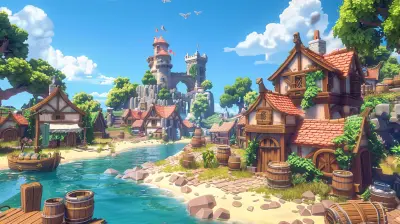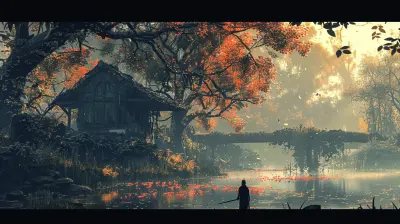Building a Kingdom: How City-Building Enhances Fantasy Games
20 August 2025
If you've ever played a fantasy game and found yourself more excited about constructing your kingdom than slaying the next dragon, you're not alone. There's just something incredibly satisfying about watching your small village sprout into a sprawling empire, all under your guidance. City-building—and the strategic elements that come with it—have become a core pillar in many modern fantasy games, and for good reason.
Let’s dive into why city-building mechanics elevate fantasy games to legendary status, and how they keep us hooked for hours on end.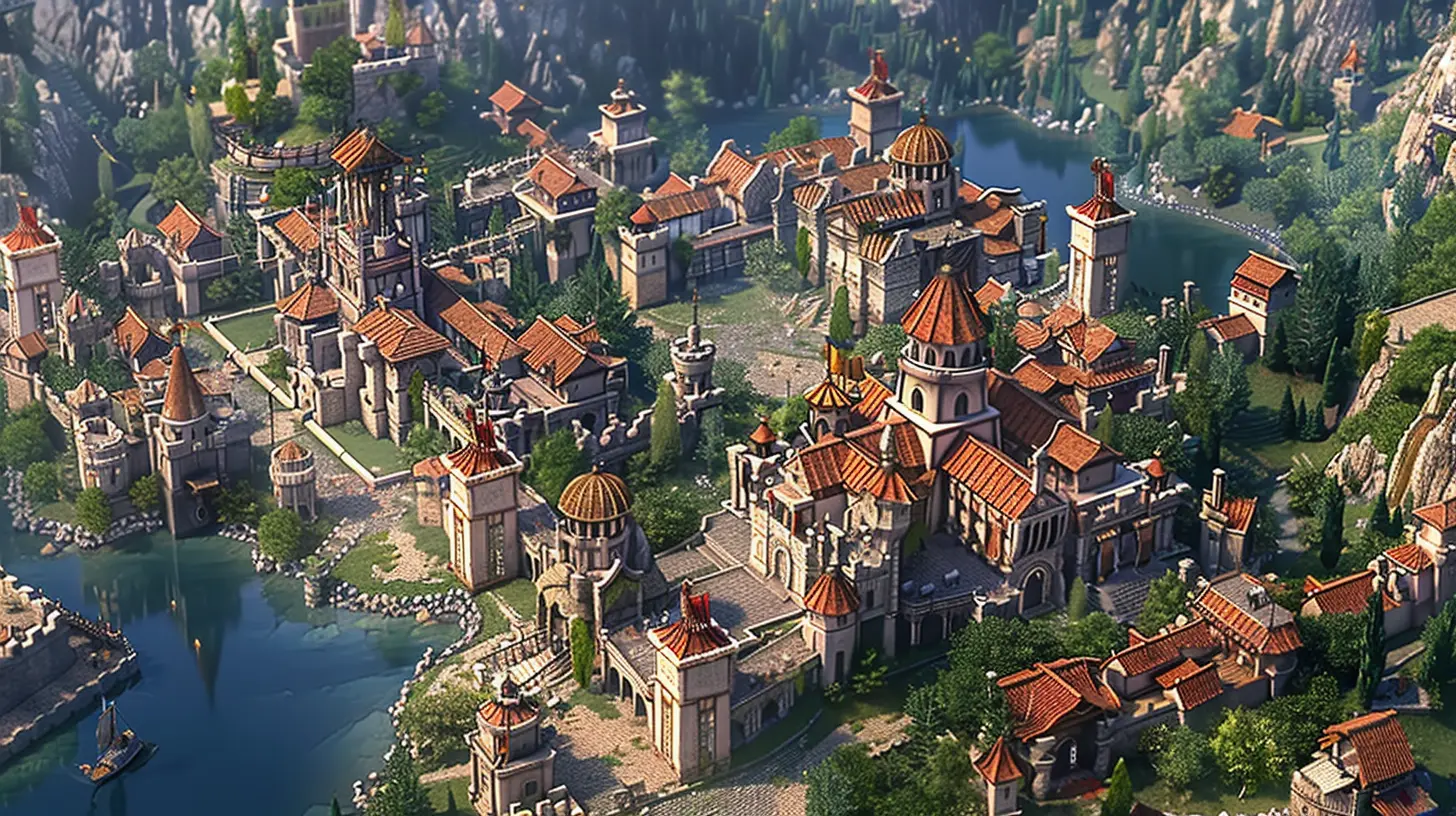
Why City-Building is the Beating Heart of Many Fantasy Worlds
Fantasy is all about immersion, right? Magic, kingdoms, ancient lore, and epic battles. Now, imagine being able to craft the very world you’re fighting for. That’s where city-building comes in—it gives you agency. You’re no longer just a hero passing through towns; you're the ruler building them.When you build cities in a fantasy game, you're doing more than placing buildings. You're shaping cultures, economies, and even politics. You’re deciding if your kingdom will be a bastion of magic, a military powerhouse, or a merchant’s paradise.
That’s powerful stuff, and it makes you feel truly invested in the game world.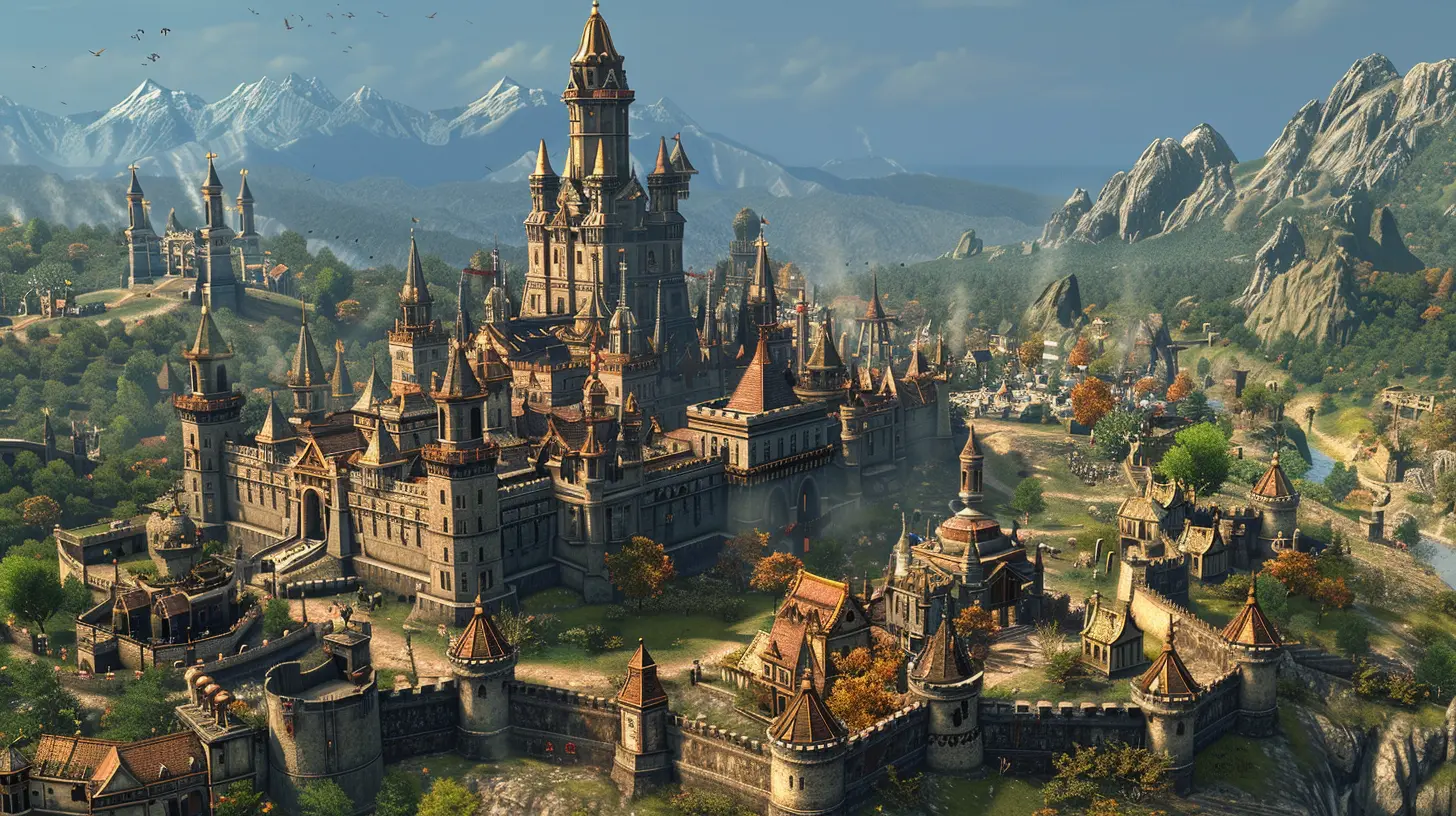
From Mud Huts to Majestic Castles: The Joy of Progression
Let’s be honest—there’s nothing quite like starting with a few tents and ending with a golden capital brimming with towers and walls.City-building taps into something primal: the joy of progress. Watching your city evolve is like watching your character level up, but on a grand scale. And every building placed, every road paved, is a step forward.
Fantasy settings supercharge this feeling by adding magical schools, dragon hatcheries, enchanted forges, and more to your city blueprint. You’re not just building houses; you're constructing the stuff of legends.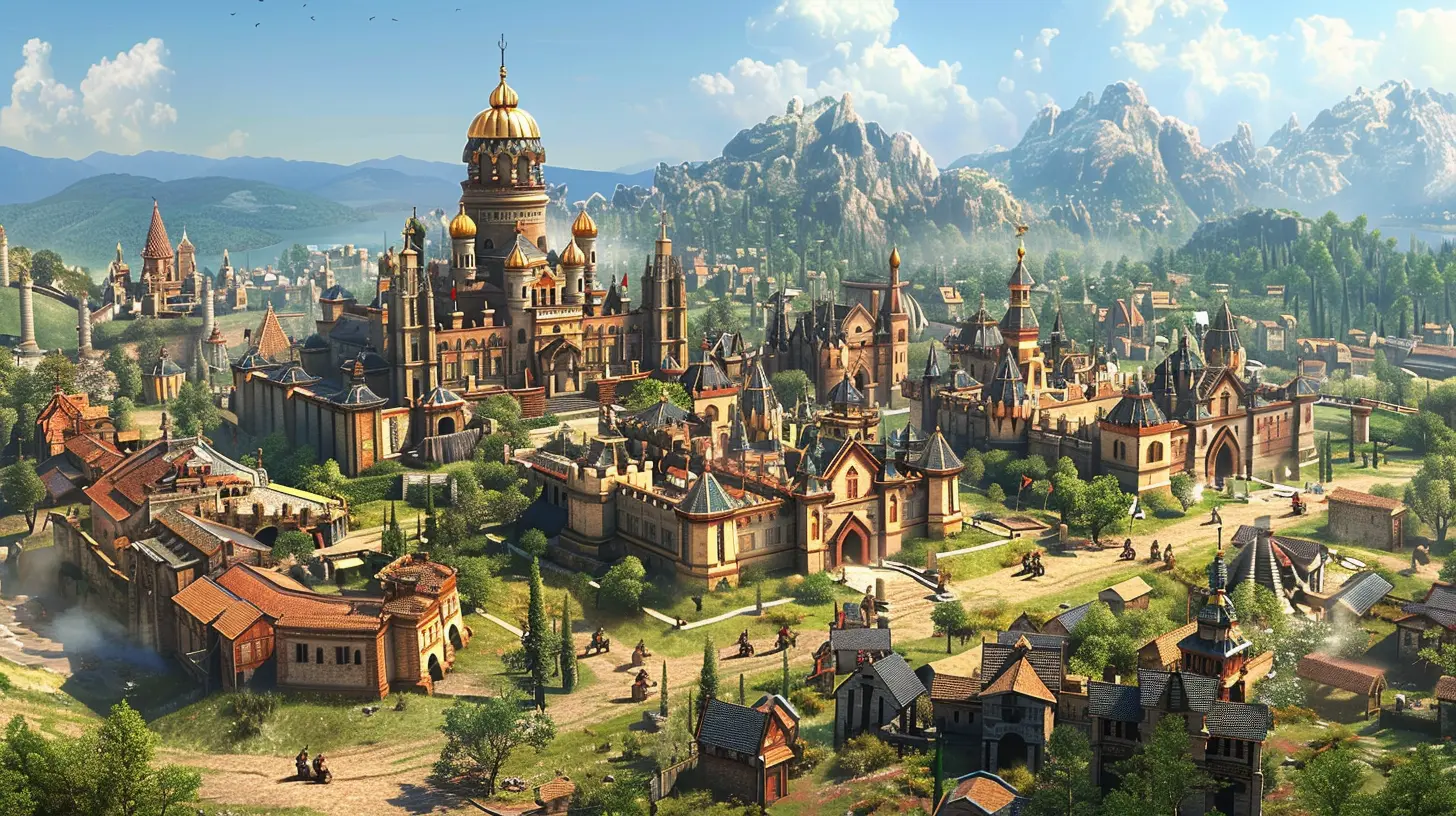
The Control Factor: Fantasy Meets Strategy
Fantasy is often about chaos—unpredictable spell battles, sudden quests, and dark forces emerging from nowhere. City-building is your anchor. It gives you control.You're managing resources like gold, mana, food, and stone. You’re allocating villagers to jobs, assigning research to mages, and deciding which buildings to prioritize. That element of strategy adds depth and makes the fantasy world feel alive and responsive.
The best part? Every decision matters. Build too many military barracks and your economy might suffer. Focus too much on trade and you might be vulnerable to goblin raids.
It’s a balancing act—and that makes it thrilling.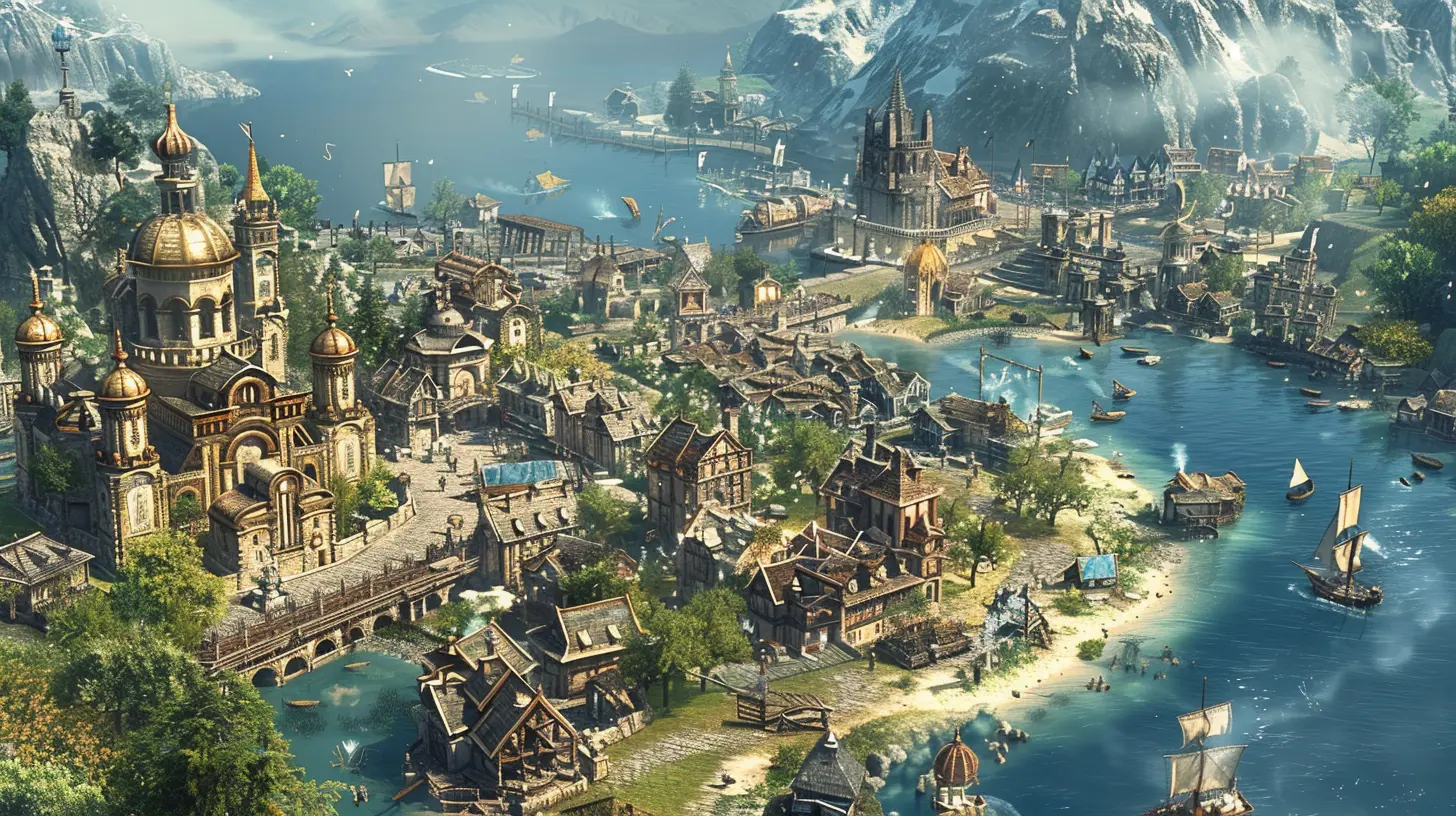
Customization: Make It Yours
Most of us play fantasy games to escape reality and build something of our own. City-building scratches that itch perfectly. It offers a visual and functional way to express yourself.Want a sprawling elven utopia filled with gardens and magical fountains? Go for it. Prefer a dirty dwarven stronghold brimming with forges and alehouses? No problem.
When a game gives you the freedom to design your kingdom from scratch, it instantly becomes your story. And that personal touch keeps players coming back.
Storytelling Through Architecture
Ever notice how buildings in fantasy games often tell their own stories? The crumbling wizard tower on the edge of town hints at lost knowledge. The blacksmith’s forge in the city center suggests a warrior culture. The walls, the streets, the layout—they all speak volumes.City-building lets you tell a story without words. Over time, your city becomes a reflection of the world’s history, your choices, and the challenges you’ve overcome. That narrative element hits different when you built it.
City-Building Fuels Long-Term Engagement
There’s a reason why you log in just to "check on your town."City-building mechanics give fantasy games long legs. Even if the main quest is done, there’s always something to tweak, upgrade, or expand. Maybe the outer wall needs fortifying. Maybe you finally unlocked that legendary workshop.
This kind of long-term engagement is what turns a game into a hobby. It gives players a reason to stick around, even after the final boss has fallen.
Tactical Benefits in Gameplay
Here’s where it gets really juicy—city-building isn’t just cosmetic. It can totally shift how you play the game.Some games link your city’s layout and infrastructure directly to gameplay perks. More barracks might mean faster troop production. A bigger library can boost spell power or unlock new tech trees.
Essentially, your city becomes one big gear in your fantasy war machine. You’re not just building for looks; you’re building for survival and domination.
Popular Fantasy Games That Nail City-Building
You’ve probably played a few of these, but here's a shoutout to some fantasy games that really know how to do city-building justice:- Banished — Okay, not strictly fantasy, but its survival-city-building mechanics set a mood that fits dark, low-magic settings.
- The Settlers Series — Classic blend of resource management and medieval fantasy.
- Kingdoms and Castles — Simple yet deep, this one lets you fend off Vikings and dragons while designing a charming kingdom.
- Tropico 6 with Fantasy Mods — Who says a banana republic can't be magical with the right mod?
- Stronghold: Legends — Mixes fantasy units and classic siege mechanics with base building.
- Anno 1404: Venice (fantasy modded) — Not inherently fantasy, but there’s a thriving mod scene that gives it magical flair.
- RimWorld (with fantasy mods like Rimhammer) — Provides colony sim gameplay with tons of fantasy additions.
Each of these games gives you that oh-so-satisfying combo of strategy, creativity, and immersion.
City-Building Is a Sandbox for Roleplayers
For anyone who enjoys roleplaying, city-building is a goldmine. You can act out being a benevolent ruler who provides for your people or a dark overlord constructing a fortress of doom. The layout of your city reflects your ideals, your narrative, and your fantasy persona.It turns a passive experience into an active one. You're not just reacting to the world—you’re shaping it.
The Psychological Hook: Why We Can’t Stop Building
Ever wonder why city-building mechanics are so addictive?It’s all about feedback loops. Fantasy city-builders often give you mini rewards—a new building unlocked, a milestone achieved, more citizens arriving. These small wins light up the part of our brain that craves progress.
At the same time, you’re juggling systems. You’re solving problems. And every decision has visible results. It’s like gardening, but instead of tomatoes, you’re growing a magical empire of floating towers and griffin stables.
And let’s not forget the emotional connection. When trouble hits your perfectly designed town, you feel it. Those aren't just buildings—they're your buildings.
The Future of Fantasy City-Building
As game tech evolves, so does the potential for world-building.We’re already seeing city-building mechanics blend seamlessly with RPG and adventure elements. Games like Kingdom Come: Deliverance and Frostpunk (with modded fantasy themes) show the potential of combining story-driven games with strategic city management.
AI and procedural generation could mean more personalized cities, where no two kingdoms are alike. Imagine a world that remembers your choices and evolves around your city-building style.
And with the rise of VR and AR, we might soon step right into our cities. Want to walk the streets of your hand-built fantasy capital? That dream isn’t far off.
Final Thoughts
City-building in fantasy games isn’t just a feature—it’s an experience. It ties together storytelling, strategy, creativity, and progression in a way that few other mechanics can. Whether you’re raising towers to the sky or defending tiny hamlets from monstrous threats, you’re doing more than just playing a game—you’re shaping a world.If you’re someone who loves fantasy but finds yourself getting giddy over grid placement and resource chains, you’re not weird. You’re a world-builder. And in the realm of fantasy, that makes you just as legendary as any knight or wizard.
So go ahead, build that kingdom. Just don’t forget the tavern—your people (and your weary adventurers) will thank you.
all images in this post were generated using AI tools
Category:
Fantasy GamesAuthor:

Tina Fisher
Discussion
rate this article
1 comments
Stella Carrillo
Oh sure, because nothing screams fantasy like meticulously planning street layouts and resource management! Who needs dragons when you can have a perfectly organized kingdom?
August 25, 2025 at 12:00 PM

Tina Fisher
I understand your point! While dragons are thrilling, strategic city building adds depth and realism to fantasy worlds, making them more immersive and engaging.
